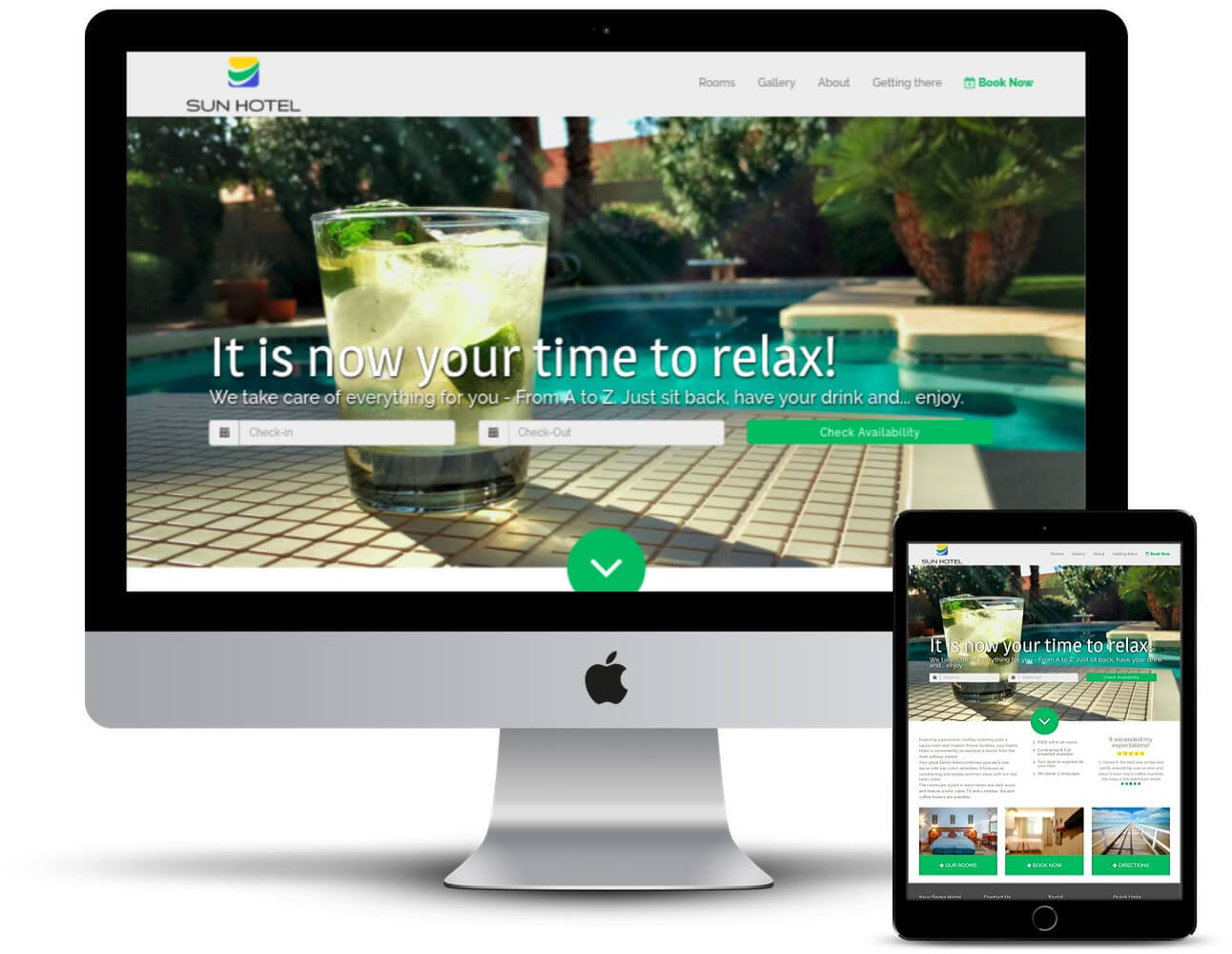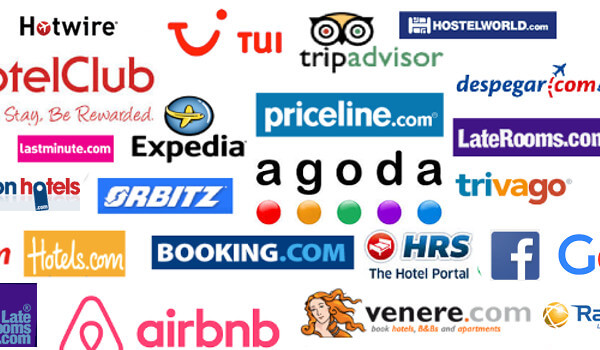Are you familiar with all the different ways to get more hotel bookings?
To help give you a complete overview, we’ve sorted all the possible bookings sources, also called marketing triggers, into four main categories:
- Online
- Offline
- Direct (0% incremental cost)
- Indirect (commission cost)
4 Hotel Bookings Sources and their Marketing Triggers
We invite you to consider each of your active – and potential – sources to make sure they’re in the right categories.
Below we delve into each category in a little more detail:
1. Direct and online: The smart long-term strategy
Consider your hotel website to be your online shop window. Potential guests should come across your site when using search engines such as Google. Whether they’re in the preliminary phase of finding destination inspiration or already in the process of comparing accommodation options, think about the different keywords they might use.
SEO techniques take time to show results, but it’s the best long-term paying strategy to improve your ranking and appear higher in search results.
Links from other websites, blogs or media to your hotel’s site won’t only be good for your SEO, but will also play a key role in recommending your property.
Travelers might discover your property by reading guest reviews on platforms such as TripAdvisor or Google Maps, so be sure to set up a recurrent process to get as many positive reviews as possible.
 The idea is to convert visitors to your website from “potential” to “actual” customers. Your site’s mission is to reassure them and build confidence around your professionalism and the quality of the experience you provide.
The idea is to convert visitors to your website from “potential” to “actual” customers. Your site’s mission is to reassure them and build confidence around your professionalism and the quality of the experience you provide.
Visitors should be able to find the info they’re looking for quickly and easily, in as little clicks as possible. Make it easy for them to call or email you, and to check availability and book directly. Time is a precious commodity and having a Booking Button (also called Booking Engine) saves some for both you and the customer.
We can help you choose the best Channel Manager or Property Management System that will allow you to add a booking button to your website.
Channel managers also enable you to automatically adjust room availability and rates on other sites that list your property.
2. Indirect and online: The quickest option
 These days, OTA’s (Online Travel Agencies) are the primary source of hotel bookings.
These days, OTA’s (Online Travel Agencies) are the primary source of hotel bookings.
Your rooms are probably already listed on a few of them such as Booking.com, Expedia, Airbnb, Agoda, etc. These OTA’s ask 15% (or more!) in commission and you can connect most of them to your channel manager.
Metasearch engines such as Trivago, Kayak, Skyscanner, TripAdvisor, or Google, are almost like OTA’s; the only difference is they take prices and availability from various OTA’s and compare them.
A handful of traditional travel agencies use GDS (Global Distribution Systems) to get real-time availability and preferred rates on flight tickets, car rental, and hotel rooms all over the world.
Read our article ‘GDS, OTA and Meta: What’s the difference?‘ to learn more about these three indirect online distribution channels.
3. Direct and Offline: Back to basics
Long before the arrival of the internet, this was and still is the traditional way hotels do their marketing.
Word-of-mouth and repeat business will always be the most powerful triggers. It’s no secret that the best marketing you’ll ever do is to exceed expectations and keep your customers highly satisfied!
4. Indirect and offline: Strategic Partnerships
Do you know who travelers to your destination ask for hotel recommendations?
Where do travelers who didn’t book a hotel in advance (they’re known as “walk-ins”) arrive first at your destination?
At the airport, train station, highway, bus terminal?
 Develop key partnerships with:
Develop key partnerships with:
- Travel agencies and tour operators (for leisure travelers),
- local companies (for corporate/business travelers),
- events agencies (for seminars) and also with your
- local tourism board and other key destination stakeholders.
This will allow you to share expertise and resources and hopefully achieve more success for all parties.
Conclusion
Direct triggers are the ones you’d want to put the most effort into in the long run due to their low or non-existing incremental costs.
For example, printing business cards with your website on it is a fixed cost, but the reservations made on your site thanks to the cards won’t cost you anything; as opposed to OTA sites that charge a fixed commission for each new booking.
Depending on your destination and hotel specifications, but also your budget and overall marketing strategy, you might have to focus your efforts on some channels more than others.
Bear in mind that the more diverse your sources of business are, the more resilient your business will become.




